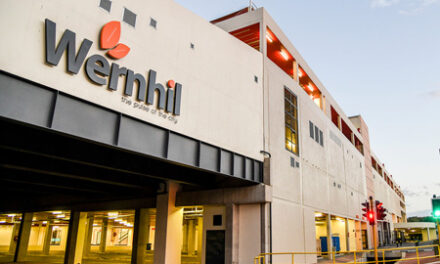
Fitch maintains our BBB- rating but the outlook slips from Positive to Stable
The severe criticism against ratings agencies, following the 2007/08 international financial meltdown, has certainly lead to substantial improvement in their work. This is most notable in their latest sovereign rating for Namibia, released less than a month ago.
I would not describe earlier Fitch ratings as inadequate, but the latest one is over-the-top. It is the most comprehensive overview and summary of our economy, and related political issues, that I have seen in many years. I think it is safe to state it is indeed a sound analysis.
Fitch kept the Namibian sovereign rating at BBB- but the outlook was lowered a notch from Positive to Stable. Nevertheless, this slight change in expected future performance is well-argued and extensively explained. I cannot fault the analysts for their views. The uncertainties in terms of exports, commodity prices, capital investment and exchange rate cannot be ignored regardless of who the analysts are and regardless of which country they are rating. I assume similar uncertainties prevail for most, if not all, their sub-Saharan customers.
Our country ceiling is A. This benchmark is determined by South Africa which sets the country ceiling for the entire southern Africa. For Namibia to find itself in the BBB category is indeed an honour, but there is a more practical angle to our rating which I hope we can use to our benefit over the next decade. Being rated BBB- allows us the opportunity to upgrade twice before we bump against the single A ceiling. Keeping company in the BBB leagues is a respectable rating, especially considering the minute size of the local economy. Our immediate peers include countries like India, Colombia, Morocco and Tunisia while slightly above us, at BBB, one finds the likes of Brazil, Russia, Mexico and Peru. One rung down at BB+ the company consists of leaders such as Indonesia and Turkey, but also includes basket cases like Iceland, Portugal and the Philippines. For our size, I would say the BBB- ratings suits us perfect while it allows us to improve incrementally, as and when we achieve higher grades in certain key areas.
There is only one aspect on which I have my own misgivings. The latest rating is a confirmation of earlier ratings, generally painting a rather flattering picture of our efforts to establish and maintain a flourishing economy. But it is based mostly on the official government budget, and for future prospects, on the Medium Term Expenditure Framework. It is common knowledge how fluid these documents are. I have made some revealing comparisons during last year and 2010 which showed that after only 12 months, for most of the budgets since the MTEF was introduced, the previous year’s estimates could be thrown away as meaningless. However, it seems Fitch is also aware of this but they put it far more politely when they reiterate that after 1996, the national budget tended to err on the conservative side.
Working through the full report and trying to digest what it tells between the lines, three key issues emerged: the future of uranium mining, the steep growth in government debt up to 2014, and the diminishing SACU receipts. These are core concerns and I believe their impact, individually as well as collectively, will determine our fortunes beyond 2014.
According to the current Medium Term Expenditure Framework, Namibia’s sovereign debt will double from 2011 through 2014. From a very comfortable 16% of GDP level early in 2011, it will expand anything between 7% and 10% over three years to take us to 33% of GDP when we enter 2015. Fitch rightly points out that this is still far below the mean peer value of 43%. In essence, it draws a future picture of us doubling our sovereign debt and then still have ample room for more expansion.
I personally do not see a problem with doubling our debt. The only proviso is that this process must be aggressively managed with proper control and, if necessary, strict law enforcement to ensure the funds actually reach the targeted projects and not get sidelined to the pockets of political fatcats. If our leaders can ensure that, then the additional debt will translate into additional investment, additional growth, and eventually, additional income. So, it is paramount that all state investments must remain above board and appear to remain above board.
In this way, when we come to the end of 2014, I expect the multiplier effect to have kicked in, in a major way, and the nominal debt currently envisaged in the MTEF, should be less than the expected 33%. In other words, unlike places like Greece, Ireland and Portugal, we have ample room to ensure our debt-based investments produce the required results so the net effect of debt versus growth will automatically reduce the expected ratio expressed as a percentage of GDP.












































